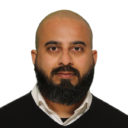If we want clean air and healthier lives, we need clean-cooking solutions. Currently, $4.4 billion is needed to make the shift to clean cooking, but ‘only’ $32 million is coming into this sector.
In a design sprint hosted by the IKEA Foundation, Karim Benammar, a philosopher specialising in transforming thinking, helped us think through the question of which unusual suspects can help to scale up, how to interest them, and what the concrete next steps are to make clean cooking happen.
Jeffrey Prins, portfolio head for renewable energy at the IKEA Foundation said: ‘We are curious about our possible role in clean cooking. We are exploring our options, based on our limited experiences with a few partners, like Inyenyeri, UNHCR and Rainforest Alliance. So we are still at the crossroads. The typical frame we get is: it’s all about (the lack of) funding. That’s why we have been interested in the most recent fund launch by the World Bank (totalling $500 million). We are hoping that there might be some push-back in how this can be framed. Maybe it’s not ‘about the money’ but something different…’
Doing this re-framing exercise was an attempt to explore how the IKEA Foundation and others might approach the issue of clean cooking in the future.
According to Karim, there are five key steps we could take to reframe complex social problems, like clean cooking, so our minds are open to more innovative thinking:
- Determine a limiting belief you would like to change.
- Map your assumptions and choose the four most important reasons you think like this.
- Construct the extreme opposite of all your assumptions—and make them most extreme. (This led to much laughter in the room. As Karim said, if we are laughing, we are on the right track!)
- Construct a reframed belief based on all our reframed assumptions and imagine if they were all true.
- Design an experiment to test one of your reframed assumptions—keeping cost, risk and timeframe in mind.
Karim mentioned they would post the findings based on the brain power of the 30+ participants who participated in the exercise later. It was a great chance to catch up and learn from others.
Her Majesty Queen Máxima of the Netherlands also dropped by briefly to listen in and contribute to the animated discussions in one of the many small working groups for this lab.
Apart from the lively discussion on polar opposite beliefs that people had to practice with each other, Karim also offered two free online reframing resources that anyone can use to rethink our approach on issues that matter, thereby finding solutions that will benefit the many in the best way possible.
reframe.thnk.org | reframing.teachable.com
Have you tried this exercise before? Has it helped you? Please leave your comments below.
Altaf Makhiawala, IKEA Foundation






Comments (0)